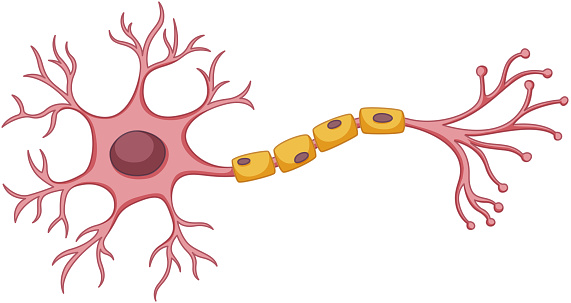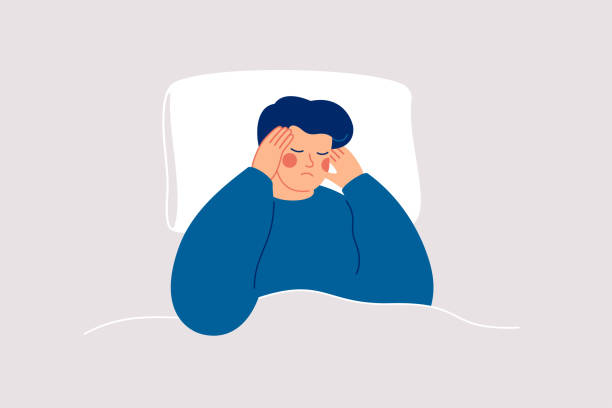
Sleep communicates with its environment in different modes.
The audio mode is an outstanding mode. It has been found that sleep is a brain-generated state of rest where both the body and the mind are shut down for a sleep-rest-reset setting. This followed the remarkable discoveries made between the nineteenth and twentieth centuries, about the roles of the brain in the sleep process through the studies of sleep in sleep-specialized laboratories carried out by measuring the activities of the brain, heart, muscles and eyes.

Notably, it was found that the brain is a mesh of wire-like tiny strands of various lengths, called nerve cells, well-arranged in bundles. The strands continually transmit messages similar to electric current among themselves to control the functions of the brain itself and the entire body. The strands are connected to each other at gap junctions, by having their ends very close to each other, where the message-sending strand releases chemicals that will act on the nearby message-receiving strand. One of these brain chemicals, melatonin, plays role in the sleep switch. The melatonin, through the disruption of some continual message transmissions, cuts off the alertness messages in the brain to induce sleep.
Night-time darkness and brain fatigue generate plenty of melatonin releases, and it gets cleared from the brain by exposure to daylight and brain freshness. The natural night-day cycle generates this melatonin release and clearance to cause a natural sleep-wake cycle. This ensures that the brain and the body it controls take repeated programmed momentary breaks to rest and recoup for further work. Meanwhile, stimulations from external perceptions of sound, touch, light, taste and smell provoke the continual message transmissions, thereby arousing brain alertness.

So, as the target during sleep is to cut off alertness of the brain, apart from the melatonin disruption of the message transmissions, removal of the provocations like sounds, light, touch and smell from the environment ensures that the effective alertness cut-off and promotes sleep quality. Noise is a collection of sounds with uneven tone, volume and frequency. It is the most significant sound provocation to the brain and disrupts the sleep quality with immediate effects leading to short-term issues the next day, and over time may result in long-term mental and physical consequences. The common voices of sleep are sleep-talking and loud snoring, and these also constitute sound provocations in the environment.
Sleep Foundation reports described the removal of surrounding sound provocations: The most logical means of sound removal is a noiseless environment, making silence seemingly the best sound for sleep. Similarly, sounds from music with even tone and volume that are soothing and sleep-inducing do the similar magic of promoting sleep. Surprisingly, consistent ambient background noise may mask the sounds one can’t control and could help to counteract the noise exposure during sleep. Also, the background noise distracts some people from disturbing thoughts and prepares the mind for sleep. Out of good nature’s works, melodious sounds from rainfall, ocean waves and winds help some people fall asleep. Therefore, the best sounds for quality sleep vary among people.
Amidst the quest for silence, consistent sounds that cover other noises and sounds with an even tone and volume, noise exposure is a nightly reality for humans. Folks, as a critical part of good sleep hygiene, you can create a bedroom for a quiet night’s sleep, as you have the ability to limit sound exposure by:
- Adding to the room soft surfaces which absorb sounds like cushioned furniture or thick curtains to lessen the noise in your room
- Sealing air gaps in the windows to insulate the bedroom from the noise outside
- Reducing appliance malfunction noise by prompt repairs or replacement
- Turning off alerts on your gadgets
- Turning on devices like a fan or air conditioner for background noise that helps to mask disturbing surrounding sounds
- Searching for professionally selected sleep playlists of songs which are soothing and sleep-inducing or creating a playlist that is relaxing to you
- Negotiating with others around you about getting quiet hours for sleep, if the noise comes from them

Do you need further information on this article?
Are you looking for the best way to maintain quality sleep for generally wellbeing and healthy living?
Are you currently facing any sleeping difficulty?
Remember, a doctor is an appropriate person to offer relevant advice for maintenance of quality sleep, solution and sleep difficulties.
Do you want to contact the Orthopaedic Sleep Consultant, Dr Charles Uzodimma, kindly send your request to sleepinfo@vitafoam.com.ng
Vitafoam is passionate about quality sleep, healthy living and general wellbeing of Nigerians. We are proudly Nigerian and constantly supports Nigerians with consistent quality products for comfort and wellbeing.
With Vitafoam, you don’t just sleep, we give you the comfort that gets you recharged.
To learn more about Vitafoam, visit www.vitafoamng.com
2 thoughts on “The Best Sounds for Quality Sleep”
Good evening sir. May I know what causes sleep-talking and loud snoring during sleep? Any remedy to snoring while sleeping?
Hello Imran,
Sleep talking is most often harmless and usually occur by itself. However, in some cases, it might be a sign of a more serious sleep disorder or health condition. It’s helpful to speak with the sleep specialist for more accurate discussion. You can catch the Sleep expert on our Instagram page (IG live) – @vitafoam.ng
Date: Saturday, 27th August 2022
Time: 9am – 11am